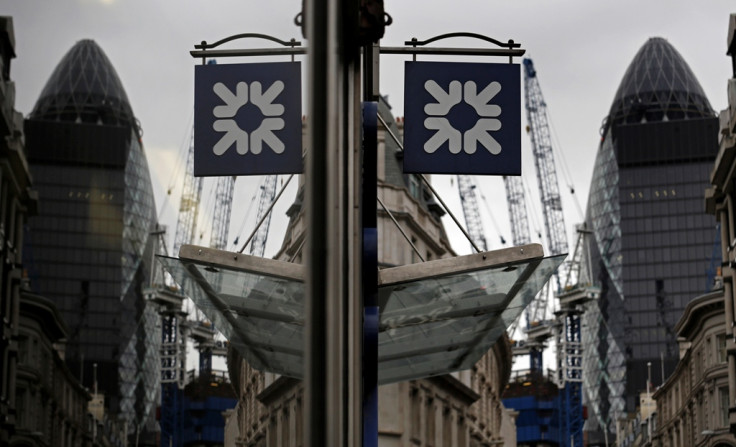RBS Shares Leap 13% After Embattled Bank Posts Sharp Profit Rise

RBS shares rocketed by over 13% in early London trading after it posted a sharp rise in profit, but the boss of the state-backed bank warned of "bumps in the road" ahead relating to past bad behaviour.
Its operating profit in the first half of the year, adjusted to exclude restructuring, litigation and conduct costs, more than doubled to £3.36bn from 2013's £1.60bn.
And RBS said it had made solid progress in its internal "bad bank", set up at the start of the year to gobble up and wind down assets that turned bad during and after the financial crisis, when it had to be bailed out with billions of pounds of taxpayers' cash. The UK government owns 81% of RBS.
During the first half, RBS Capital Resolution whittled down one of its portfolios toxic assets by 28%, or £8bn, to £21bn. Another portfolio was slashed by 33%, or £21bn, to £44bn in all.
"The results we are posting today show the steady progress we are making as we take the steps to be a much simpler, smaller and fairer bank," said Ross McEwan, chief executive of RBS.
"These results show that underneath all the noise and huge restructuring of recent years, RBS is a fundamentally stronger bank that can deliver good results for customers and shareholders."
However, McEwan said he had to "sound a note of caution", despite the positive results.
"We are actively managing down a slate of significant legacy issues. This includes significant conduct and litigation issues that will likely hit our profits going forward," he said.
"I am pleased we have had two good quarters, but no one should get ahead of themselves here -- there are bumps in the road ahead of us. Today's results are pleasing but no one at this bank is complacent about the challenges ahead."
RBS has been hit by a number of regulatory investigations and fines stemming from past activities of its traders. It has been caught up in scandals such as interest-rate fixing and the mis-selling of financial products.
And the bank looks set to be tangled up in the ongoing investigations by global regulators into suspicions of manipulation by bankers of the multi-trillion pound foreign exchange market. RBS has suspended a handful of its forex traders.
The UK government is eyeing a reduction in its RBS stake. But Chancellor George Osborne is unlikely to move before the general election in 2015 for fear of a botched sell-off of some of the government's RBS shares.
He is also minded to wait until the various legacy issues mentioned by McEwan are resolved, to ensure that when he does sell RBS shares he gets the best price possible and so recoups as much of taxpayers' original investment as he can.
RBS had to be bailed out at the height of the financial crisis to spare it from collapse, a bankruptcy that could have been catastrophic for the UK economy and the global banking sector.
Under the terms of the bailout package, RBS has been required to refocus itself on supporting the UK economy through lending to businesses and consumers, and turn its back on the risky casino-like investment side that was the cause of its downfall.
© Copyright IBTimes 2024. All rights reserved.






